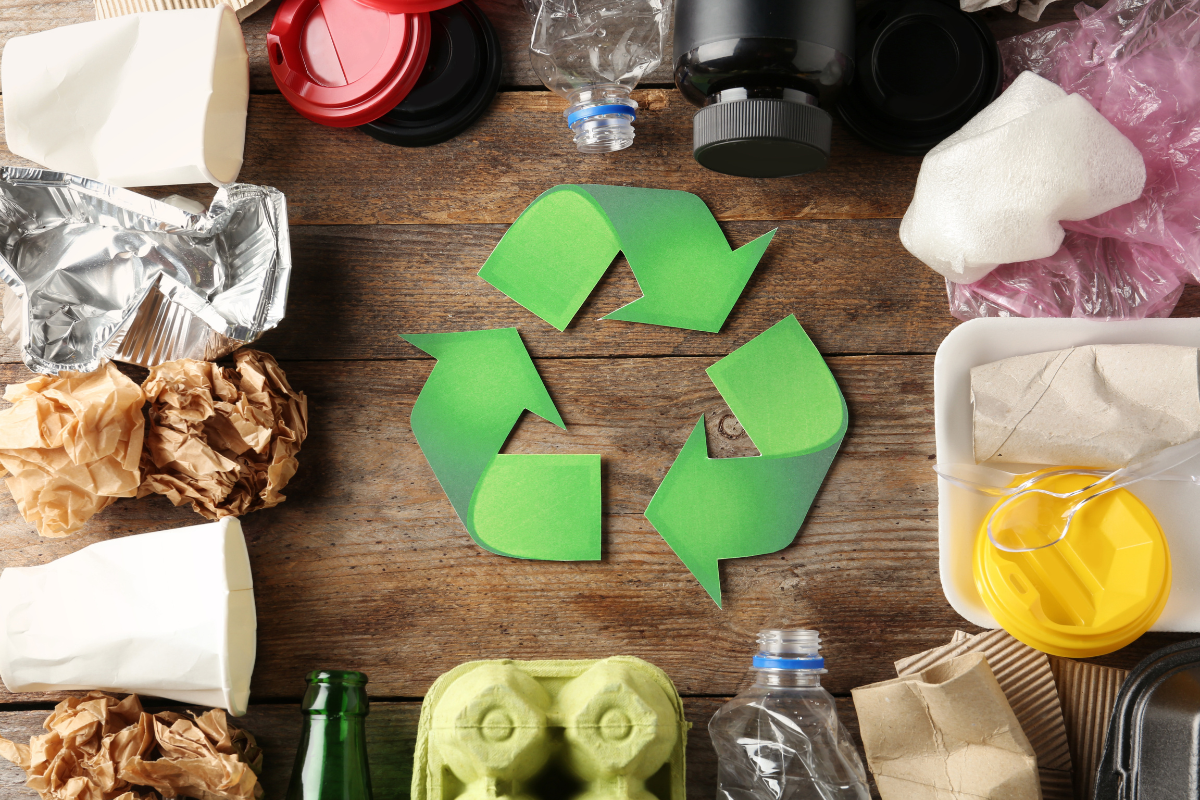
Rebound members can now trade more recycled materials on the platform, including plastics, metal, glass, OCC and e-scrap. | New Africa/Shutterstock
After starting in plastics, an online recycled material trading platform is expanding into glass, metal, rubber, OCC and paper and will soon add e-scrap.
United Arab Emirates-based Rebound aims to increase communication and transparency at all levels of the recycling value chain and make it easier to buy and sell recycled materials, said Yassamin Homayouni, the company’s senior marketing and communications specialist.
Homayouni told Resource Recycling that the idea for the platform was sparked during the initial COVID-19 lockdowns, when founder Maryam Al Mansoori wondered how all of the single-use plastic items used then would be disposed of. Seeking to make recycling easier, she decided to create a platform to allow buyers and sellers to connect.
Homayouni said the team spent two years studying global plastic recycling regulations and finding commonalities so that they could create a certification protocol.
“Basically, once you get certified by Rebound, you are ensured that you’re able to trade around the world,” she said.
The platform itself launched in September 2022 and initially just handled plastic, though Homayouni said the goal was always to expand into other materials. Roughly two years later, the team has reached that goal.
“What makes this platform so unique this time around is once you subscribe – and until the end of the year we actually have an offer where people can join for just $25 – once you join us, you get access to all the members on this platform,” she said. There is no commission on sales made on the platform.
The expanded platform also has a chat feature, and Homayouni said Rebound encourages members to connect and make deals even if they’re not through the platform, because the goal is to improve recycling and strengthen relationships up and down the value chain.
“We’re not limiting people,” she said. “We’re saying this is the hub where we want you to connect with this entire industry.”
While members could always post what they had for sale, they now can also post requests, if they want a type or quantity of material that is not currently listed for sale.
“Let’s say I come to a platform and I’m looking for something very specific,” she said. “Let’s say I’m looking for PET flakes – but I’m looking at 500 tons and there’s nothing available on the platform, so I can’t find anyone. I have the option to go request my demand.”
After inputting the request, other members will get a notification that someone is looking for 500 tons of PET flakes, opening up more avenues for trades, Homayouni said.
“It does reduce emissions and makes it just easier to connect with people within the same industry, making it easier even for brands to meet their sustainability goals,” Homayouni added. “Just making it easier for the entire ecosystem and bringing everyone together.”
One of the barriers that the Rebound team sees in making recycling successful is the lack of coordination and communication between public and private sectors, the government, citizens and recyclers, Homayouni said. She hopes that a transparent platform such as Rebound can help, along with the other arm of the business, Rebound Solutions, which does advisory and consulting work.
“The way we see Rebound in the future, we do see it bringing in everyone within the entire ecosystem, from governments to the household level,” Homayouni said. “We want to be able to help them and have them be a part of this entire scheme.”

